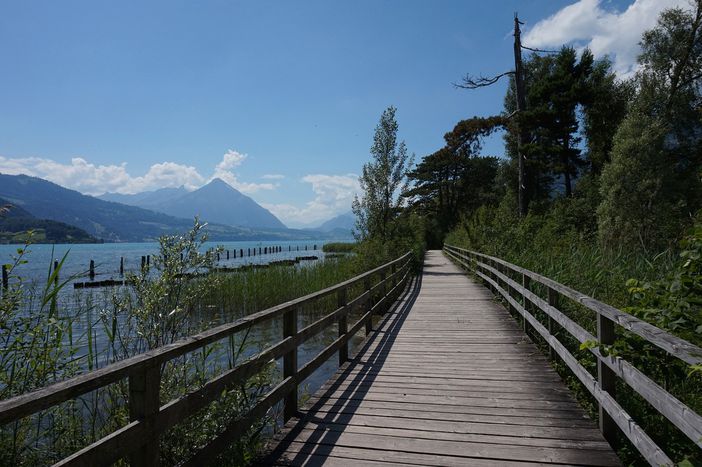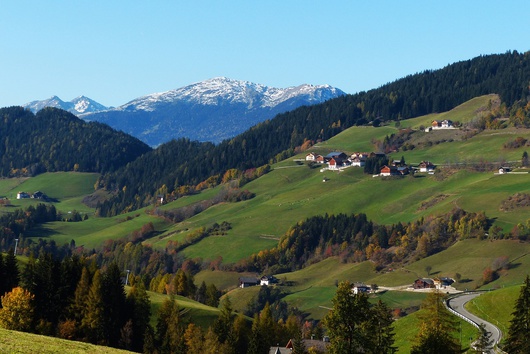
‘I have cold!’ A language biography from South Tirol.
Published on
Translation by:
Lucy ChadwickSouth Tirol is situated in Italy and has a German and an Italian speaking population, but doesn’t have a bilingual school system. Stefan K, a 21-year-old physics student from Brixen, the main village of the South Tirolian Eisack village in Italy, talks about his experiences living between multilingualism and “language apartheid” on the cultural border between Germany and the Belpaese.
Café babel: Brixen is situated…
Stefan K.: …between 2 very different cultures, which come together and complement each other in South Tirol, for South Tirol is neither complete without German culture nor without Italian culture, even if the latter would be contested by many of South Tirol’s inhabitants. I was born and raised in Brixen, attended a German- speaking school there for 13 years and studied Italian as a second language for 11 years.
Café babel: Would you describe yourself as bilingual?
Stefan K.: The fact that two cultures live side-by-side in South Tirol does not mean that South Tiroleans are bilingual. As I see it, the biggest problem is the language apartheid which still exists in South Tirol. After I finished school, I initially wanted to study physics in Padova, but after a few visits (and a test), I realised that my Italian was still, at a very basic level as a result of a lack of practise . So, I decided to study in Germany for the short-term. At the moment, I am ‘a German speaking Italian Erasmus student from Germany, in Pisa’. Bilingual schools are important for the future of younger generations in South Tirol. But no progress has been made in this area yet.
Café babel: “Multilingualism 2016-2020” is a set of measures introduced by the German education department in the autonomous province of Bozen to promote multilingualism. Amongst other things, these measures include offering support for teachers of Italian as a second language in order to improve teaching standard. In your experience, do you think this is a necessary measure?
Stefan K.: : Unfortunately, I must admit that up to now I haven’t heard anything about this project, but to quote my maths tutor: “This step is necessary, but not sufficient!”
Café babel: Why?
Stefan K.: I’ve seen a few projects and models which are trying to develop a bilingual school, but they have all fallen at bureaucratic hurdles, because at the moment we’re not allowed to have bilingual schools in South Tirol (only a few ‘pilot projects’ like vocational language teaching). From my point of view, these projects are on the one hand better than nothing, but on the other hand they are only going to be successful in the long-term (if ever).
 Café babel: How would you describe your personal language biography?
Café babel: How would you describe your personal language biography?
Stefan K.: Personally, I prefer to speak my South Tirolian dialect, a German dialect with Italian influences, since it is my mother tongue and I can speak it much more naturally and spontaneously than standard German or Italian. Italian is definitely a foreign language to me, which I find a shame , as I really would have liked to have attended a bilingual school. In terms of standard German, I have to say that I would probably call it a second language, because I understand and speak it almost perfectly, but it’s not my mother tongue.
Café babel: In which language can you best express your feelings, and why?
Stefan K.: When it comes to feelings, I have to swallow the pride of my dialect and admit that I express my feelings either in standard German or in Italian. When I express my feelings in German, I give a rather euphemistically precise description, whereas in Italian, it’s more of a harmonious, obscured representation.
Café babel: South Tirolean German is well-known for being characterised by typical interferences from Italian….
Stefan K.: When I was in Germany, I was extremely careful not to allow any Italian influences when I spoke. However, I still cursed in Italian, as most South Tiroleans do. I say “I have cold!” instead of “I am cold!” which compares grammatically to the Italian “Ho freddo!”.
Café babel: A coming-together of two cultures is usually reflected in the cuisine. Is this the case in South Tirol?
Stefan K.: Typical South Tirolean dishes and pastries include dumplings, Tirteln (a kind of filled pastry), Strauben (like Funnel Cake) and ‘Kniakiachln’. Other typical cross-border desserts include apple strudel and Kaiserschmarrn (chopped up pancakes served with plum or apple mousse) which only appear on the menus in some areas of South Tirol. On the Italian side of South Tirol, they mainly eat pasta and polenta. You can also get pizzas cooked in a wood-fired oven, which are obviously served with a glass of south Tirolean wine. So in terms of food culture in South Tirol, there’s a mixture of hearty home-cooked dishes and light, Mediterranean cuisine.
Café babel: And a love of expressos?
Stefan K.: The South Tiroleans really enjoy a decent Macchiato.
Translated from "Ich habe kalt!": Eine Sprachbiografie aus Südtirol



